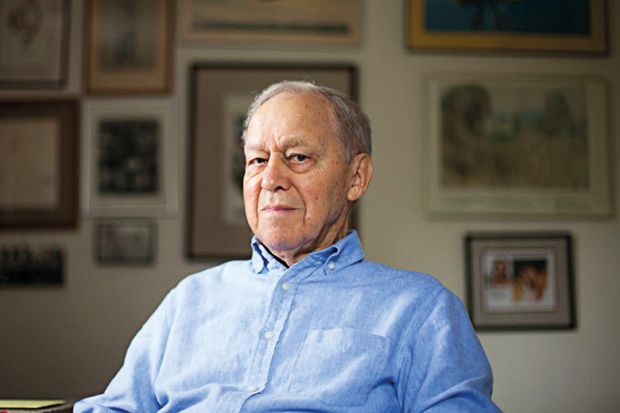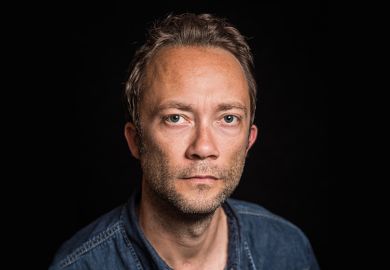A literary critic who transformed understanding of the experience and representation of war has died.
Samuel Hynes was born in Chicago on 29 August 1924 but grew up in Minneapolis. Even as a boy, he once said, he was “caught up in the romance of flying and planes”. At the age of 18, he enlisted in the Marine Corps and served as a bomber pilot in the Pacific during the Second World War, and again in the Korean War from 1952 to 1953. He remained a great flying enthusiast for the rest of his life.
Professor Hynes’ war record won him a Distinguished Flying Cross and also, through the GI Bill, opened a path into higher education, with a first degree at the University of Minnesota (1947), followed by a PhD from Columbia University (1956). After periods teaching at both Swarthmore College and Northwestern University, he joined Princeton University in 1976, where he remained until retirement as Woodrow Wilson professor of literature emeritus in 1990.
He established a reputation as a literary scholar with books such as The Edwardian Turn of Mind: The First World War and English Culture (1962) and The Auden Generation: Literature and Politics in England in the 1930s (1977), as well as studies of individual writers.
However, as time went on (and long into retirement), Professor Hynes increasingly turned his attention to war and its representation, in a memoir, Flights of Passage: Reflections of a World War II Aviator (1988), with The Unsubstantial Air: American Fliers in the First World War (2014) and the essay collection On War and Writing (2018). The Soldier’s Tale: Bearing Witness to Modern War (1997), which presents combatants’-eye views of conflict, received a Robert F. Kennedy Award.
Acclaimed novelist Joyce Carol Oates, Roger S. Berlind ’52 professor in the humanities and professor of creative writing, both emeritus, at Princeton, described Professor Hynes as “highly respected as a scholar-critic specialising in late 19th-century and early 20th-century literature [and] author of major studies of Thomas Hardy and Ezra Pound”.
She added: “His reputation at Princeton was that of a brilliant, warmly sympathetic member of the English department, a memorable lecturer, dissertation advisee, colleague and friend. For years Sam was a familiar Princeton figure, riding his bicycle from his home on Moore Street to the university library and to his office in McCosh, looking – literally – decades younger than his age.”
Professor Hynes died on 9 October and is survived by daughters Miranda and Joanna, three grandchildren and three great-grandchildren.
Register to continue
Why register?
- Registration is free and only takes a moment
- Once registered, you can read 3 articles a month
- Sign up for our newsletter
Subscribe
Or subscribe for unlimited access to:
- Unlimited access to news, views, insights & reviews
- Digital editions
- Digital access to THE’s university and college rankings analysis
Already registered or a current subscriber? Login




